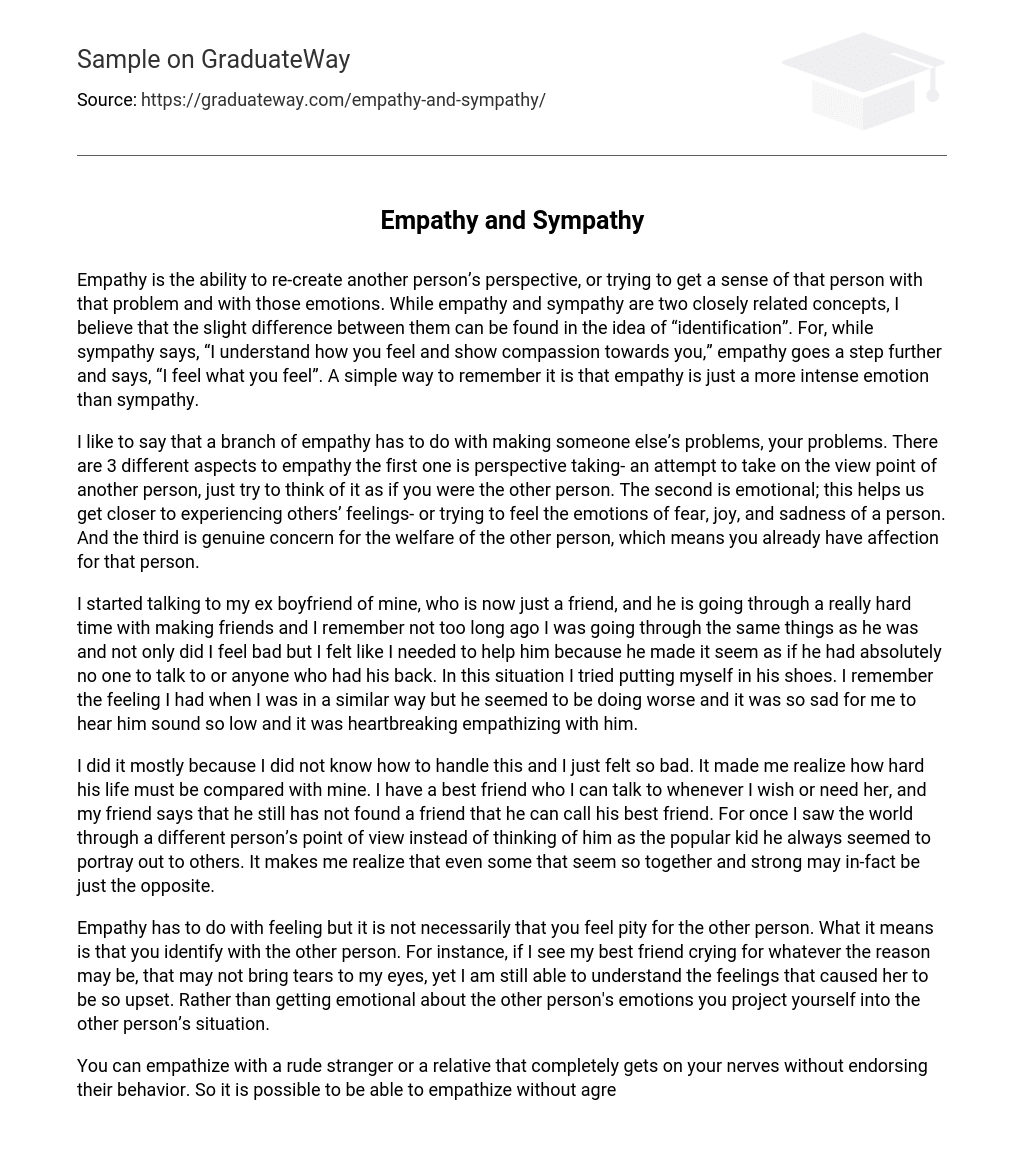Empathy is the act of putting oneself in another person’s position to comprehend their feelings and difficulties. It shares a close connection with sympathy but diverges in terms of “identification”. Sympathy involves displaying compassion and understanding, whereas empathy goes a step further by experiencing the same emotions as the other individual. In essence, empathy surpasses sympathy in intensity.
Empathy encompasses understanding another individual’s viewpoint, establishing an emotional bond, and genuinely caring about their well-being.
Upon reconnecting with my ex-boyfriend, who is now a friend, I learned that he is currently encountering difficulties in forming new connections. This struck a chord with me since I recently went through a similar predicament. It saddened me to hear that he feels entirely alone and lacks someone to confide in or provide assistance. As I contemplated my own experience, I endeavored to understand his perspective. Nevertheless, it became evident that his challenges were even more profound than mine, causing me great sadness for the depression he is experiencing.
Due to my uncertainty in handling this situation, I felt deeply distressed. This encounter provided me with insight into the challenges my friend faces compared to my own life. While I have a best friend whom I can freely communicate with, my companion reveals that they have yet to find someone who fulfills the role of their closest confidant. In this moment, I had the opportunity to see the world from another person’s perspective rather than just perceiving him as the popular individual he seemed to be. It made me realize that even those who exude confidence and seem well put-together may actually be quite vulnerable.
Empathy goes beyond mere sympathy; it encompasses comprehension and connection with others. When my closest companion is in tears, I may not tear up myself, but I can still grasp the emotions that led to her suffering. Instead of being consumed by another person’s sentiments, empathy enables you to imagine yourself in their situation.
It is possible to empathize with an unpleasant stranger or annoying relative without condoning their actions. Empathy does not require agreement with the individual. While it is feasible to empathize without sympathy, achieving total empathy is impossible as you cannot fully experience their situation. Fully understanding another person’s perspective is a challenging task due to differing backgrounds and limited communication skills.
Empathy is an important skill that enables individuals to deeply understand the world from another person’s perspective. Without empathy, communication suffers as it fails to consider the audience’s viewpoint. In any type of communication, whether spoken or written, both the communicator and the message can elicit positive or negative sympathy from the audience. Sympathy refers to one’s ability to feel compassion for someone in a difficult situation.
An example of sympathy is when one watches a late night infomercial about underprivileged children in Africa, which often elicits an immediate sympathetic response in many people. The images of malnourished and sick children commonly evoke feelings of sadness for the suffering they endure. Sympathy involves feeling remorseful for another person and expressing the sentiment, “I feel sorry for the unfortunate situation you are going through,” while recognizing that it is their predicament and not your own. It is important to note that sympathy can only be felt towards someone whom you have a connection with or pity.
Feeling sympathy for someone you dislike is challenging, and it’s impossible to truly sympathize with someone who harms others. Sympathy requires compassion for another person’s situation, but ultimately, it remains their problem, not yours. It also involves understanding the other person’s perspective. When feeling sorrow for someone else, individuals can empathize with their emotions to the point where a sympathetic individual might even cry on their behalf. Consequently, sympathy represents a form of compassion.





